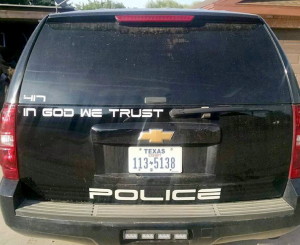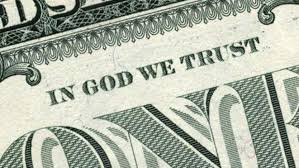If you think your friendly blogger — that would be me — is a godless heathen who stands with left-wing causes of all stripes, then I want you to ponder this.
I have no problem at all with public schools displaying the phrase “In God We Trust,” which is going to occur in South Dakota beginning with the upcoming school year.
The Legislature there approved the bill, which Gov. Kristi Noem signed into law.
OK, let’s visit the First Amendment for a moment. It declares that “Congress shall make no law respecting an establishment of religion, or prohibiting the free exercise thereof … “
So, does plastering the phrase that appears on our national currency on school walls constitute the establishment of religion? It does not! Supporters of the motto placement say they want it to promote patriotism, to which I say, “Whatever.”
Quite unsurprisingly, certain groups contend that putting “In God We Trust” on public school walls sends a message to children that we are governed by a theocracy. Really! That’s what the Freedom From Religion Foundation, which calls it a “stealth” campaign to inject religion into state law.
Come on! Let’s get a grip here!
The motto suggests we should put our trust in God. It does not instruct anyone to do so. And what is so wrong with invoking “God”? Some non-Christian groups appear to be objecting to the reference to the deity. Well, God listens to people of all faiths, at least that is the way I always have considered the Almighty’s power.
And in the event that a public school student should wonder out loud in the classroom about the tenets of the nation’s founding, it falls on the teacher to teach the student accurately about what the nation’s founders intended.
They created a secular state. From where I sit, the U.S. Constitution is a rock-solid document that affirms what the founders intended.

